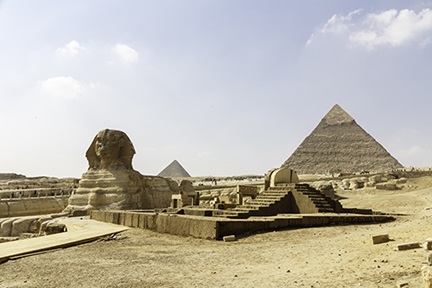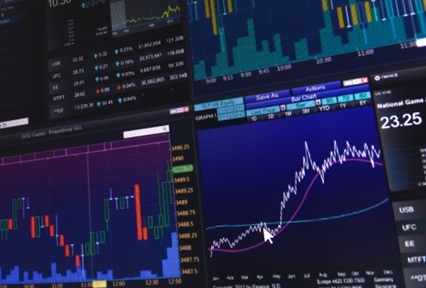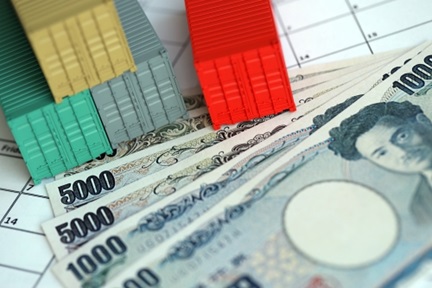Goal Africa
A case for sports as an engine for economic development and tool of diplomacy
By Ronak Gopaldas

The use of sports to advance policy and economic interests is often overlooked and sometimes misunderstood. But it is a powerful tool that when used effectively can project the image of a country that it wants the world to see. The 1995 Rugby World Cup, held just one year after South Africa’s transition to democratic rule, allowed the post-Apartheid nation to show the world its progress on building an inclusive and unified country.[1] For the country’s citizens, it was a nation-building exercise aimed at healing deep wounds by changing the narrative around the old Apartheid government’s beloved (and almost exclusively white) Springboks.[2] Equally as unifying was South Africa’s hosting of the 2010 FIFA world Cup, especially since “soccer”, unlike rugby, is the favourite sport of the majority of South Africans. South Africa had been on the other end of sport diplomacy many times prior to emerging from the sporting and political wilderness.
While incidents involving South Africa are the most often cited example of sports boycotts and diplomacy in Africa given the country’s history, there are many important inter-continental examples worth mentioning. In Algeria, football has been a legitimising instrument used by the state[3], primarily against bitter political and football rivals, Egypt[4] and Morocco.[5] For Morocco, their defeat of former European colonial powers, Belgium, Spain and Portugal at the Qatar FIFA World Cup was not only a symbolically powerful statement of post-colonial independence, but it galvanised support for the country across the continent.[6]
But sports can also be used to whitewash crime, grease corruption, and promote ideology. The 1936 Summer Olympic Games in Berlin was used by the Nazi party to propagate their theory of Aryan ‘superiority’.[7] While Africa has experienced both, the factors favouring the potential of using sports for good far outweighs the cons.
Sports Diplomacy
Sports diplomacy is not a new concept and has long helped opposing countries find common ground around mutual interests. The concept dates as far back as the ninth century BC, where the ancient Greek tradition of the “Ekecheiria”, an Olympic Truce, was signed between the three warring kings of Elis, Pisa and Sparta to ensure the safety of athletes and spectators at the ancient Olympic Games.
Sport and politics have always been intertwined but in modern times, sport has been used more broadly by countries to further their ideologies and interests.
In the early 70’s the Chinese invited the US ping pong team (table tennis) to compete at a tournament in China in 1972, making them the first American team to visit the then isolated country since communist takeover in 1949.[8] The tournament paved the way for the lifting of a 20 year trade embargo with China.[9] More recently, NBA player, Dennis Rodman’s trips to North Korea[10], ultimately opened the way for a meeting between Kim Jong Un and then US President Donald Trump.[11]
The theme of using sports as a platform to showcase a country’s economic, political and technological development has been equally as prevalent in Africa.
Attracting commercial sporting events to Africa
Despite Africa’s revenue from sport sponsorships amounting to more than USD2bn annually, it accounts for less than 5% of the global market and coverage remains underrepresented.[12] This has limited brand growth in the second most populous continent in the world, but a growing streaming market is slowly changing this. Africa’s potential as a new market for sport is beginning to gain attention by broadcasters, sponsors, new sporting codes and top teams from across the world.
Africa’s youthful population gives it an abundance of talent. But many of its sporting stars are contracted to international teams where they become proxy ambassadors for their country. Mo Salah (Egypt), Lucas Radebe (South Africa) and Didier Drogba (Ivory Coast) are just a few examples of African stars reaching the peak of their craft at one of the highest levels of world football, the English Premier League (EPL).[13] There are currently more than 50 African players from 16 different countries contracted to teams in the EPL. Each country represented by an African player is a potential new market for advertising, merchandising and franchise growth.
Spain’s La Liga, in which several African football stars play, has realised how valuable the African market could be in terms of franchise growth and opened offices in Johannesburg in 2015.[14] The league expanded rapidly on the continent, opening offices in Abuja six months later. Today, Africa is the league’s fastest growing region with media coverage doubling on the continent in the 2019-2020 season.[15] Spanish clubs Celta Vigo, Real Betis and FC Barcelona have several grassroots academies in Zambia, South Africa and Zimbabwe.[16] More than just growing its brand and fanbase in untapped Africa, it has opened new revenue streams through broader merchandising markets, new commercial sponsorships and sports betting partnerships - La Liga inked a deal with African online sports betting company, SportPesa to serve as the league’s official African betting partner.[17] SportPesa already has partnership agreements with EPL clubs Arsenal, Hull City and Southampton.
While football is king in Africa, there is more than enough room for new entrants. America’s National Basketball Association (NBA) also recently opened offices on the continent in order to extend the country’s, and code’s interests in Africa through the Basketball Africa League (BAL). More than just a means of identifying talent and procuring a player pipeline, growth of the sport in Africa would allow the expansion of viewership and television broadcast rights as well as open doors to new sponsorship and merchandise sales. The NBA wants basketball to be one of the top sports in Africa over the next decade.[18]
The National Football League (NFL) too has put Africa on its growth agenda. For the NFL, Africa is a long game[19] and less commercially focused for the time being. Keen to break out from its US-only reputation, the NFL wants to raise awareness of the game and grow American Football globally, having hosted talent identification camps in both Accra and Nairobi.[20] As with the EPL, there are more than 125 players of African descent (born in Africa or first generation born in the US) from 15 countries across the continent playing in the NFL.
Another sporting code where Africans are gaining prominence is the Ultimate Fighting Championship. Francis Ngannou (Cameroon), Israel Adesanya (Nigeria), Kamaru Usman (Nigeria) and Dricus Du Plessis (South Africa) are just some of the African mixed martial arts combatants carrying the flags of their countries to the international stage and are generating widespread interest in the sport among Africa’s younger generation. The UFC has recognised the growing interest in the sport on the continent and are considering hosting events on the continent in the coming year.
There are four main channels through which to better commercialise sports for Africa. The first entry point for Africa is through encouraging the development of a talent pipeline which can be exported globally and then the management of that talent. What follows are television and media rights, sponsorships, merchandise sales and event betting, which together can generate enormous continental interest, brand growth and commercial success.
An avenue that Saudi Arabia is pursuing to generate both domestic and global interest in its football league is by signing superstar Cristiano Ronaldo to their Al Nassr Football team. Another Saudi club, Al Hilal tried to lure Lionel Messi with a US$500m per year contract to play in the Saudi League.[21] Ultimately, the football megastar signed with Inter Miami, a US team following the same recipe to grow their franchise.[22] Inter Miami’s model is similar to the interest generated in US Soccer when David Beckham signed to play for LA Galaxy. Big signings such as these stir both domestic and international attention, drawing in additional sponsorship, merchandising and broadcast opportunities. For most African countries, this is not a financially viable model given the enormous spending involved. Instead, Africa can learn from what India did in developing the Indian Premier League (IPL), a hugely successful short format cricket tournament with a brand value exceeding US$11bn. The IPL which was only founded in 2007 is today the most popular cricket league in the world and lures the best talent from across the globe, generating billions in sponsorship deals. The IPL has been very successful in commercialising the tournament, selling the 2023 media rights to Viacom and Star Sports for US$6.4bn. Their recipe is peppering domestic competition with international stars in a shorter, more exciting format which immediately broadens the appeal. Its more than sport, encompassing entertainment, betting, fanfare, and spectacle.
Sports as an economic growth driver
The global sports market is growth at a cumulative annual growth rate of 8% and expected to reach US$600bn by 2025. It can be a major driver of growth for Africa. Recent estimates show that sports still only represent 0.5 % of African GDP, compared to 2 % of GDP in other parts of the world.[23] While there are sporting centres of excellence in Africa, there is for the most part, a dearth of infrastructure, facilities and expertise. To accelerate its sporting development and unlock commercial value, Africa must leverage the growing interest from various sporting codes and tap into their experience and resources. As much as African sporting exports raise awareness and support for a particular sport or team, attracting international talent would shine a light on Africa’s sporting leagues and provide sponsors with international exposure. Africa and its teams will not be able to do this alone with their limited funding and will require capital investments for promoting sports and building sporting facilities. Morocco is considered an African hub and a breeding ground for talent, not only because of its world-class sports facilities, such as the Mohammed VI Football Academy, the key to the success of the Moroccan national team at the Qatar-2022 World Cup. A dedicated national agency – Sonarges – has been created for the sole purpose of maintaining stadiums for sporting events. The Kingdom is in the running to host the African Cup of Nations 2025, and it has announced a joint bid alongside Spain and Portugal for the organisation of the World Cup 2030. Cash-strapped Ministries of Sports could rely on various models of public private partnerships to build local sports infrastructure. For example, Rwanda has partnered with South Africa’s QA Venue for the development and operation of the 10,000 seat Kigali Arena.
Private equity funds are looking to get a foothold in Africa to deploy capital in the hope of outsized returns.[24] Companies like Arctos Sports Partners, Bluestone Equity Partners and Manhattan West are just three of an ever increasing number of venture capital houses looking to invest hundreds of millions of dollars throughout the sporting, media and entertainment value chains and the room to grow this model in Africa is considerable.
Talent management agencies like Roc Nation too view Africa as fertile ground for emerging talent and already manage South African cricketers Lungi Ngidi and Temba Bavuma and Springbok rugby players Siya Kolisi, Tendai Mtawarira and Cheslin Kolbe. Media companies like SuperSport and DAZN which hold the rights to broadcast major international sports and have both satellite and streaming platforms, are opening more opportunities to advertisers and sponsors on the continent and globally and make private investment an easier sell.
Offense and own-goals
With so much attention being given to Africa by various sporting codes and federations, Africa needs to cash in. African states are looking to leverage sport’s global exposure to promote awareness and tourism to their country. Rwanda Tourism’s 3-year, EU34m sponsorship of Arsenal Football club in 2018 was estimated to have increased tourism by 8%, with tourist visits from England alone increasing 5% over the previous period.[25] The deal was controversial but appears to have borne fruit. SA Tourism in South Africa tried something similar with a proposed sponsorship of EPL club Tottenham Hotspur but the deal was condemned by the public and even other government agencies, and later found to have been riddled with corruption.[26] The sponsorship was ultimately scrapped. These two incidents are an important illustration of how sport’s potential for good can be used for nefarious, even destructive purposes and sponsors, benefactors, supporters and the corporate sector need to be mindful of the brand damage it can cause. Match-fixing, vote buying[27] and bid and tender rigging are not uncommon in both the public and private sectors and hold huge reputational risk.
The investment required to host major sporting events is enormous and its longer-term economic spin-offs often overstated. The benefits come by way of spending on the construction of stadiums, investment on upgrading road, air and rail infrastructure or developing altogether new infrastructure. Economically, there are more arguments against hosting mega sporting events than there are for what are often referred to as vanity projects.[28] Nevertheless, beyond the employment and economic boost generated during the construction phase, some of the infrastructure (such as roads, airports, telecommunications upgrades) investment can continue to support economic growth for decades. The awareness and exposure alone is immense and its long-term benefits are difficult to quantify. The 2021 Africa Cup of Nations held in Cameroon saw thousands of football fans travel across Africa to cheer their national teams—and with that came potential for an economic boost to local businesses.
Rather than strain weak public finances to build single-use infrastructure (stadiums), Africa must instead try and build mixed use facilities which can be contracted to private operators for commercial events. African sports ministries can also capitalise on the interest the continent is receiving from the likes of La Liga, the NBA, NFL and UFC. There are also many other sporting codes that have little to no presence and little interest yet on the continent. Many of these are country or region specific and could benefit from new markets and audiences such as the NFL, baseball (US) and table tennis (China).
Apart from just nurturing young talent, Africa needs to attract investment, revenue, and development on a micro level from the entrance of new sporting codes. The sports and federations themselves should act as a conduit for private sector participation and sponsor investment to build training facilities, sport science institutes and so gradually expand facilities and infrastructure. They could, for instance, support private initiatives such as Kenyan Riders – a competitive cycling training project started by Nicholas Leong, a former Singapore commercial photographer-turned-professional cycling team manager, which groomed Salim Kipkemboi who won the coveted Sharjah Tour (UCI 2.1) in 2018 when he was just 19.
 Centre Director Amit Jain with Kenyan Riders
Centre Director Amit Jain with Kenyan Riders
For leagues and sponsors that want to grow their exposure and footprint in Africa, it will be important to understand that the relationship must be symbiotic. By getting the basics right, crowding in foreign investment and developing a sound game plan, Africa can take advantage of its sports market for the growth and development of the continent.
(additional inputs from Amit Jain, Director, NTU-SBF Centre for African Studies)
References
[1] Laverty, Alex. Sports Diplomacy and Apartheid South Africa. Swim History. [Online] December 13, 2010.
[2] Beyer, Greg. Mandela & the 1995 Rugby World Cup: A Match that Redefined a Nation. The Collector. [Online] May 1, 2022. https://www.thecollector.com/nelson-mandela-1995-rugby-world-cup/.
[3] Oliver, Brian. Twenty years on, the 'hate match' between Egypt and Algeria is on again. The Guardian. [Online] October 10, 2009. https://www.theguardian.com/football/blog/2009/oct/10/egypt-algeria-repeat-hate-match.
[4] Digby, Adam. Algeria-Egypt Playoff: A (Re)Match Made in Hel. Bleacher Report. [Online] November 14, 2009. https://bleacherreport.com/articles/290159-egypt-algeria-a-rematch-made-in-hell.
[5] Cizmic, Alex. How Algeria and Morocco's political rivalry spilled into football. New Arab. [Online] April 3, 2023. https://www.newarab.com/analysis/how-football-fell-victim-algeria-and-moroccos-rivalry.
[6] Aidi, Hisham. Morocco’s World Cup Run Was a Political Game Changer for North Africa. The Wire. [Online] December 17, 2022. https://thewire.in/sport/morocco-world-cup-run-political-game-changer-north-africa.
[8] Laverty, Alex. Sports Diplomacy and Apartheid South Africa. Swim History. [Online] December 13, 2010.
[9] Andrews, Evan. https://www.history.com/news/ping-pong-diplomacy. History. [Online] October 19, 2018. https://www.history.com/news/ping-pong-diplomacy.
[10] Harper, Jennifer. Dennis Rodman’s diplomacy. Washington Times. [Online] August 21, 2022. https://www.washingtontimes.com/news/2022/aug/21/inside-beltway-dennis-rodmans-diplomacy/.
[13] Gopaldas, Ronak. Sport’s scramble for Africa. New Frame. [Online] August 17, 2021. https://www.newframe.com/sports-scramble-for-africa/.
[15] Gopaldas, Ronak. Sport’s scramble for Africa. New Frame. [Online] August 17, 2021. https://www.newframe.com/sports-scramble-for-africa/.
[16] IOL. LaLiga's Southern Africa footprint reaches KZN. IOL. [Online] March 11, 2023. https://www.iol.co.za/sport/soccer/la-liga/laligas-southern-africa-footprint-reaches-kzn-ed5eb37a-159b-44dc-bd90-7d5a08c9481d.
[18] Gopaldas, Ronak. Sport’s scramble for Africa. New Frame. [Online] August 17, 2021. https://www.newframe.com/sports-scramble-for-africa/.
[25] Monnet, Théau. Rwandan tourism scores big after Arsenal deal, despite criticism . The Africa Report. [Online] September 6, 2019. https://www.theafricareport.com/16937/rwandan-tourism-scores-big-after-arsenal-deal-despite-criticism/.
[26] Davis, Rebecca. From Lindiwe Sisulu, With Love: Inside SA Tourism’s R1bn proposal to sponsor Tottenham Hotspur. The Daily Maverick. [Online] January 31, 2023. https://www.dailymaverick.co.za/article/2023-01-31-from-lindiwe-sisulu-with-love-inside-sa-tourisms-r1bn-proposal-to-sponsor-tottenham-hotspur/.
[28] Zimbalist, Andrew. Is It Worth It? IMF. [Online] March 2010. https://www.imf.org/external/pubs/ft/fandd/2010/03/zimbalist.htm.

.tmb-listing.jpg?Culture=en&sfvrsn=8636ce67_1)





